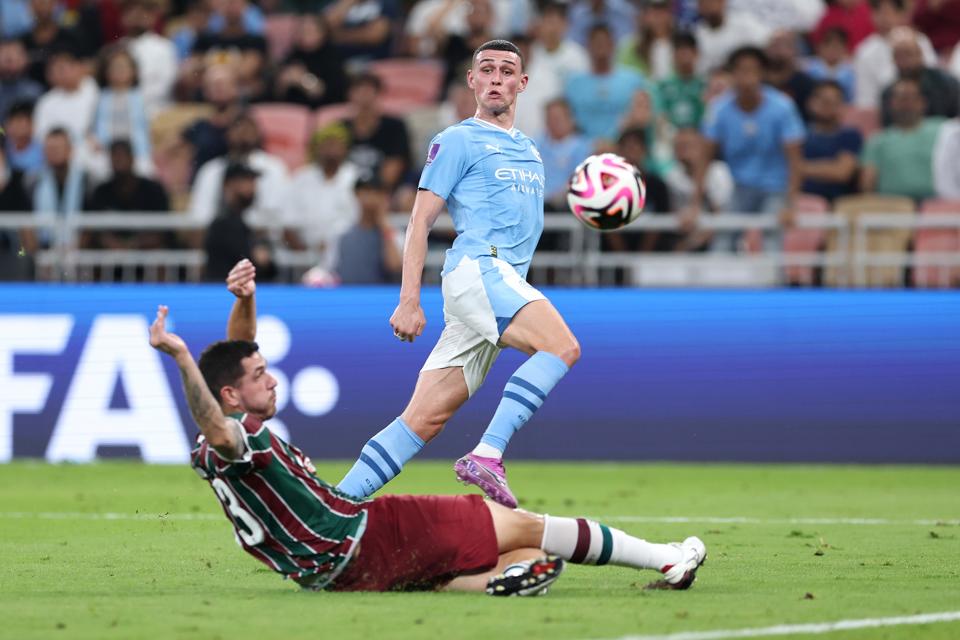Manchester City defeated Brazil’s Fluminense 4-0 to win its first Club World Cup and conclude a trophy-laden year in style. All it took was forty seconds and one attack for City to take the lead. Nathan Ake exploited a boulevard of space to curl a shot against the woodwork, but Julian Alvarez, a stand-in for Erling Haaland, drew on his instinct to shoulder the rebound into the net. After all the build-up to the Club World Cup final, a match of paramount importance in South America, this felt anti-climatic although predictable. City is a power difficult to contend with. The English began passing and pressing as they do against so many teams.
Fluminense responded by playing out of the back, taking many risks, almost pretending this was a regular game in the Carioca championship. Its players were committed to play through Manchester City’s press. The Rio club could not be accused of adapting its style to the European champion. It was backline bravado and old-school Brazilian play with short passes in small spaces, often overloading one side of the field. Yet, a penalty for Fluminense was chalked off for offside and in the 27th minute the South American champion was another goal down after Phil Foden’s cross deflected off Nino. It was a touch unlucky for Fluminense, but City’s passing in the final third was more incisive.
Guardiola’s team was ruthless, every attack leading to danger with Jack Grealish releasing a dangerous attempt from the edge of the box. Fluminense simply gave away too many scoring opportunities. By the end of the first half, the game had become pedestrian with the Brazilians massed behind the ball.
City was on its way to conquering the world. Fluminense’s manic short passing had been as admirable as it was tragic. In reality, whichever philosophy or tactic the Rio club applied, it had little chance to upend the global soccer hierarchy. European clubs sit comfortably atop with South America and other continents reduced to hopeful challengers, and often bystanders. City had it too easy with Rodri controlling the midfield.
Diniz responded by introducing John Kennedy at half-time, but City began on the front foot, nearly scoring another rebound goal. Fluminense remained toothless, reducing the second half to an academic exercise and as the match progressed, the English and a wildly gesticulating Guardiola could reflect on a stellar 2023 – their best-ever year in fact, with five trophies. The Abu-Dhabi owned club won the Champions League for the first time ever last June. It was the trophy City wanted most and the one it had brought Guardiola to north England for. Throughout the week in Jeddah, Guardiola repeated how he wanted to win the Club World Cup. His players responded to discard their sluggish Premier League form. In the 70th minute, Phil Foden scored City’s third at the far post. Fluminense was tasked with damage control now.
Soon after, Rodri departed after Fluminense’s Aleksander smashed into him, a reminder that calendar congestion and a tournament like the Club World Cup, considered irrelevant in Europe, increases the risk of injuries. Earlier this week, Guardiola said, as FIFA released more details about the expanded Club World Cup in 2025, that he is not against new competitions but “against the lack of time to recover between year by year.”
In the 88th minute, Alvarez, a reward for his work ethic and class, got his second to wrap up the 4-0 win, the same score line Pep Guardiola’s FC Barcelona dispatched Neymar’s Santos with in 2011. Just like then, the gulf in class and wealth between Europe and South America was simply too big. Guardiola warmly congratulated Diniz as he became the first manager to win the Club World Cup with three different clubs. City is the champion of the world.

